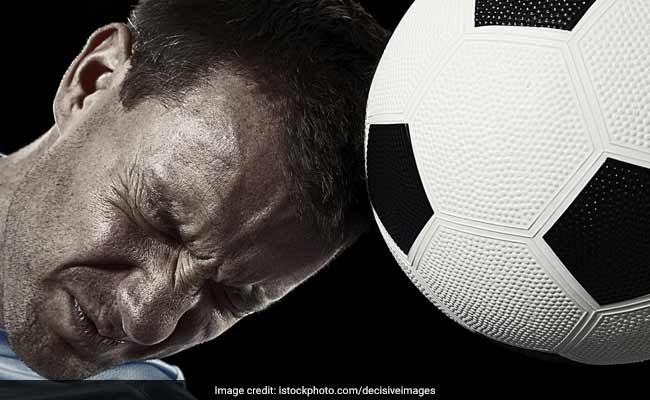Even head blows that do not result in loss of consciousness may cause brain changes that increase the risk of dementia, new research has found.

Alzheimer's disease is the most common form of dementia
HIGHLIGHTS
- Even minor head blows can increase risk of dementia
- Concussion without loss of consciousness increases risk for dementia
- Alzheimer's disease is the most common form of dementia
Even head blows that do not result in loss of consciousness may cause brain changes that increase the risk of dementia, new research has found. The study, which tracked more than 350,000 participants, showed that the likelihood of dementia more than doubled following concussion. Concussion without loss of consciousness led to 2.36 times the risk for dementia, showed the findings published in the journal JAMA Neurology. These risks were slightly elevated for those in the loss-of-consciousness bracket (2.51) and were nearly four times higher (3.77) for those with the more serious moderate-to-severe traumatic brain injury.
The researchers identified participants from two databases. The first group included all-era veterans whose traumatic brain injuries could have occurred during civilian or military life.
The second group included veterans serving in Iraq and Afghanistan, for whom most of these injuries had occurred in combat zones, such as from shockwaves in blasts.
"The findings in both groups were similar, indicating that concussions occurring in combat areas were as likely to be linked to dementia as those concussions affecting the general population," said first author Deborah Barnes, Professor at the University of California, San Francisco, US.
In total, 357,558 participants, whose average age was 49, were tracked.
Half had been diagnosed with traumatic brain injury, of which 54 per cent reported experiencing concussion.
The study followed the participants for an average of 4.2 years.
"There are several mechanisms that may explain the association between traumatic brain injury and dementia," said senior author and principal investigator Kristine Yaffe, Professor at the University of California, San Francisco.
"There's something about trauma that may hasten the development of neurodegenerative conditions. One theory is that brain injury induces or accelerates the accumulation of abnormal proteins that lead to neuronal death associated with conditions like Alzheimer's disease," Yaffe said.
Alzheimer's disease is the most common form of dementia.
"It's also possible that trauma leaves the brain more vulnerable to other injuries or ageing processes," Yaffe said.
(This story has not been edited by NDTV staff and is auto-generated from a syndicated feed.)
DoctorNDTV is the one stop site for all your health needs providing the most credible health information, health news and tips with expert advice on healthy living, diet plans, informative videos etc. You can get the most relevant and accurate info you need about health problems like diabetes, cancer, pregnancy, HIV and AIDS, weight loss and many other lifestyle diseases. We have a panel of over 350 experts who help us develop content by giving their valuable inputs and bringing to us the latest in the world of healthcare.














